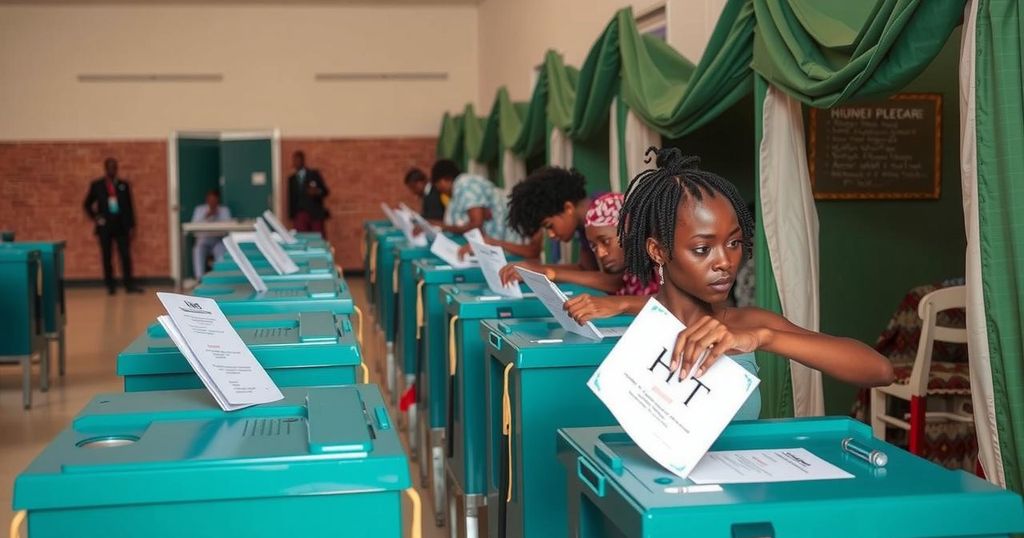Chad Holds Controversial Parliamentary Elections Amid Opposition Boycott
Voting is underway in Chad’s first parliamentary elections in over a decade, with low turnout due to an opposition boycott. The government promotes these elections as a step towards ending military rule, but opposition leaders claim results are predetermined. The process is marred by allegations of fraud, and significant regional instability persists as other nations like Sudan encounter conflicts.
Voting is presently underway in Chad for its first parliamentary elections in over a decade, a crucial event as the government claims it marks a transition away from military rule. Voters are tasked with selecting representatives for a new parliament, provincial assemblies, and local councils in a nation struggling with poverty. Despite this, significant opposition to the elections exists, with major parties calling for a boycott, asserting that the outcomes have been predetermined, which is reflected in low voter turnout, particularly in the capital city, N’Djamena.
The ruling government, under President Mahamat Idriss Deby Itno, who ascended to power in 2021, urged citizens to participate fully. Conversely, opposition leaders have expressed skepticism about the integrity of the electoral process, emphasizing their belief that the election results are already available in advance. Notably, one opposition leader, Succes Masra, emphasized, “The fabricated results are already in the computers.” On the ground, sentiments among voters varied, with some expressing hopes for significant change, even amidst skepticism and claims of voter fraud, including reports of missing ballots.
These elections occur amidst a backdrop of local and regional instability, including increased violence from Boko Haram and simmering issues in neighboring Sudan. The government has characterized the elections as essential to establishing a democratic framework after years of military dominance. However, claims of misconduct and pre-election suppression have clouded the electoral integrity. No fewer than 100 foreign observers are present to monitor the process as stakeholders navigate these challenging circumstances.
Chad, one of the world’s poorest countries, is currently grappling with a critical transitional phase from military governance to a semblance of democracy. Following the death of long-standing President Idriss Deby Itno and the subsequent rise of his son, Mahamat Idriss Deby, in 2021, calls for a restoration of democratic governance have grown louder. The turbulent political landscape, compounded by economic hardship and external security threats, forms the context within which these parliamentary elections are taking place. The opposition’s call for boycotting the elections further exemplifies the ongoing struggles and divides inherent in Chad’s quest for a legitimate and representative political process.
In summary, Chad’s parliamentary elections present both a pivotal moment and a contentious arena in the nation’s political sphere. With the government aiming to re-establish authority through these elections, significant opposition challenges exist, primarily revolving around accusations of predetermined results and claims of voter suppression. Ultimately, the elections highlight the ongoing struggle for democracy within Chad, juxtaposed against broader regional challenges and internal disparities.
Original Source: www.aljazeera.com




Post Comment